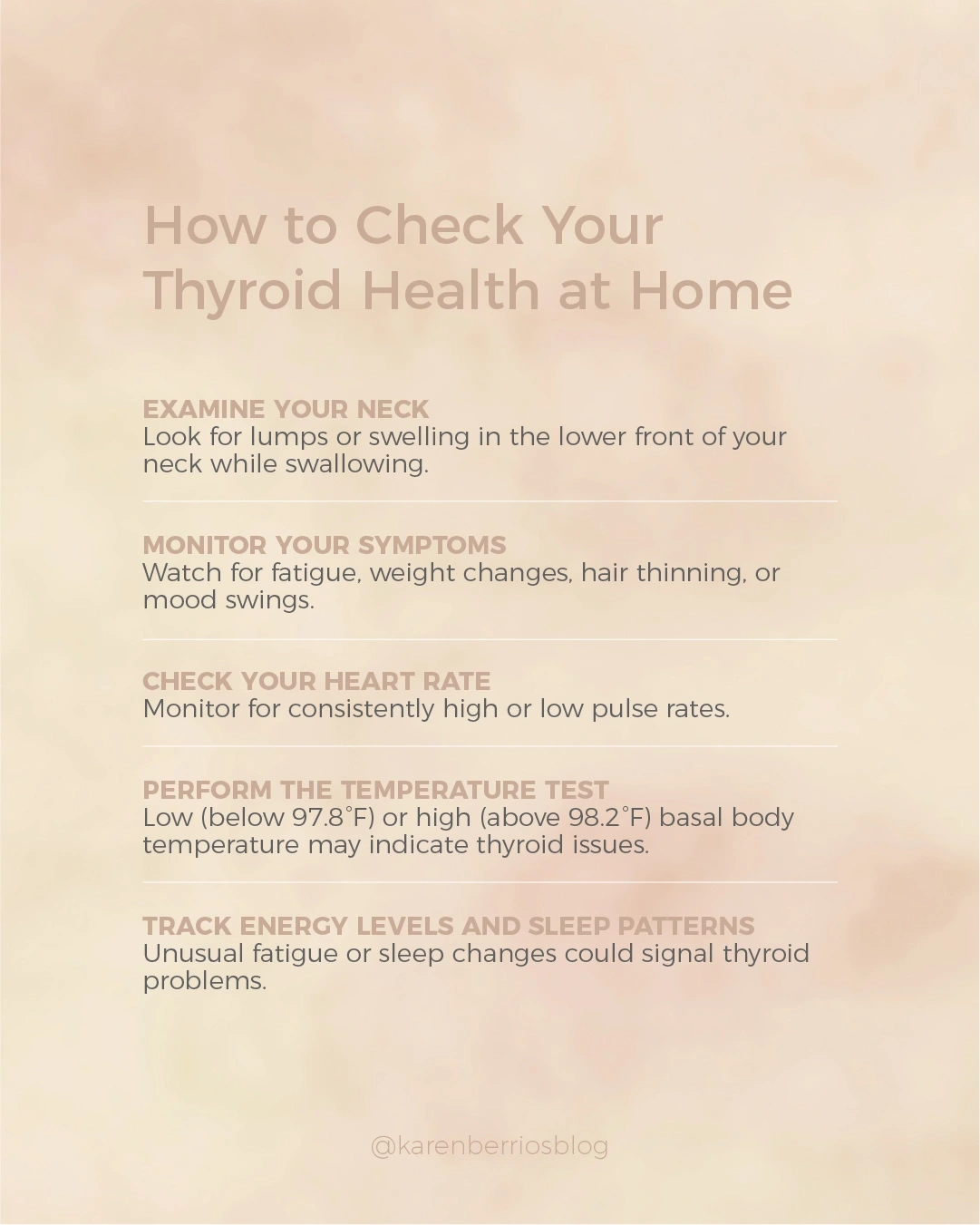

Thyroid awareness month 2025
Did you know your thyroid, a small butterfly-shaped gland in your neck, plays a big role in your overall health? January is Thyroid Awareness Month 2025, a time to shine a light on this often-overlooked part of our body and the vital functions it controls. From regulating your metabolism to influencing your energy levels and mood, your thyroid is working hard every day to keep you balanced.
For 2025, we’re focusing on empowering individuals with knowledge about thyroid health. Many people live with undiagnosed thyroid conditions, unaware that symptoms like fatigue, weight changes, or even mood swings might be tied to this tiny but mighty gland. Thyroid Awareness Month is here to help change that by spreading awareness and encouraging conversations about thyroid diseases, diagnosis, and care.
History of Thyroid Awareness Month
Thyroid Awareness Month began in the early 2000s, spearheaded by organizations like the American Thyroid Association (ATA) and Thyroid Federation International (TFI) to address the widespread lack of awareness about thyroid diseases. January was chosen to align with the New Year’s focus on health and well-being, making it an ideal time to educate people about the thyroid’s vital role in regulating metabolism, energy, and overall health.
Over the years, groups like the Endocrine Society and the American Association of Clinical Endocrinologists (AACE) have joined the effort, offering resources, awareness campaigns, and screenings to promote early diagnosis and better treatment.
History of Thyroid disease
The history of thyroid disease dates back centuries, with early records describing goiters (enlarged thyroids) in ancient civilizations like Egypt and China. In the 19th century, scientists began to understand the thyroid gland’s role in regulating metabolism, leading to groundbreaking treatments for conditions like hypothyroidism and hyperthyroidism. The discovery of iodine’s importance in thyroid function helped eliminate goiter as a widespread issue in many regions. Today, advancements in endocrinology continue to improve the diagnosis and management of thyroid diseases, empowering millions to lead healthier lives.
Why Thyroid Awareness Month is Important
Thyroid Awareness Month highlights conditions that often go unnoticed but significantly affect health. The thyroid regulates metabolism, energy, and mood, yet thyroid diseases are often underdiagnosed. According to the American Thyroid Association (ATA), around 20 million Americans have a thyroid condition, but many don’t know it.
This month focuses on increasing understanding of common conditions like hypothyroidism, hyperthyroidism, and thyroid cancer, which can often mimic other health problems. Women are particularly at risk, being five to eight times more likely than men to develop a thyroid disorder, according to the ATA. Awareness is key because early detection can lead to better treatment and improved quality of life.
Thyroid Awareness Month Facts
- Thyroid conditions are more common than you might think. Around 20 million Americans have a thyroid problem, but many don’t know it, according to the American Thyroid Association (ATA). Women are especially at risk, being five to eight times more likely to have thyroid issues than men. Symptoms like tiredness, mood swings, or weight changes are often mistaken for other problems, which is why awareness is so important.
- There are also many myths about thyroid health. Some people think thyroid problems are rare or that weight gain is the only symptom, but that’s not true. Other signs, like hair loss, a fast heartbeat, or feeling down, can also point to thyroid trouble. Your thyroid affects your energy, mood, and how your body works overall, so keeping it healthy is key.
What Are Thyroid Diseases?
The thyroid is a small, butterfly-shaped gland in your neck that produces hormones essential for your metabolism, energy, and mood. When the thyroid isn’t functioning properly, it can lead to several conditions:
- Hypothyroidism: The thyroid doesn’t produce enough hormones, leading to fatigue, weight gain, and feeling cold or sluggish.
- Hyperthyroidism: The thyroid produces too many hormones, causing symptoms like a racing heart, weight loss, and anxiety.
- Thyroid Nodules: Small lumps that can be harmless or, in some cases, indicate thyroid cancer.
- Thyroid Cancer: A rare condition that is often treatable if detected early.
- Autoimmune Conditions: Diseases like Hashimoto’s thyroiditis (causing underactive thyroid) or Graves’ disease (causing overactive thyroid) where the immune system attacks the thyroid.
Women are more likely to develop thyroid diseases than men, but these conditions can affect anyone. Recognizing the symptoms and seeking medical care can make a big difference in maintaining overall health and balance.
How Are Thyroid Diseases Diagnosed?
Diagnosing thyroid diseases involves several steps:
- Recognizing Symptoms: Common signs include fatigue, weight changes, mood swings, or a lump in the neck.
- Physical Exam: Doctors check the thyroid gland for swelling, lumps, or irregularities during a physical exam.
- Blood Tests:
- TSH (Thyroid-Stimulating Hormone): The most common test to check thyroid function.
- T3 and T4 Levels: Measure thyroid hormones to determine if the gland is underactive (hypothyroidism) or overactive (hyperthyroidism).
- Imaging Tests: Ultrasounds or radioiodine scans are used to examine the thyroid’s structure and detect nodules or other abnormalities.
- Biopsy: If there’s a concern about thyroid cancer, a fine needle biopsy may be performed to collect and analyze thyroid tissue.
How to Check Your Thyroid Health at Home: 5 Key Steps
- Examine Your Neck
- Use a mirror to check for swelling or lumps around the lower front of your neck while tilting your head back and swallowing. Unusual changes may indicate thyroid issues.
- Monitor Your Symptoms
- Pay attention to symptoms like fatigue, weight changes, hair thinning, sensitivity to cold/heat, or mood swings. These are common signs of thyroid imbalances.
- Check Your Heart Rate
- Thyroid problems can cause abnormal heart rates. Measure your pulse regularly; a consistently high or low rate could be a warning sign.
- Perform the Temperature Test
- Measure your basal body temperature for several mornings in a row. Low temperatures (below 97.8°F) might indicate hypothyroidism, while higher ones (above 98.2°F) could suggest hyperthyroidism.
- Track Energy Levels and Sleep Patterns
- Unexplained fatigue, difficulty sleeping, or sudden changes in energy levels might be linked to thyroid dysfunction and should prompt further investigation.
If you notice any concerns, consult a healthcare professional for a detailed evaluation. Early detection is key to managing thyroid health effectively.
Conclusion
- Recap the importance of Thyroid Awareness Month.
- Call to action: Get involved, stay informed, and prioritize thyroid health.
- Links to trusted resources for thyroid information and support.

hey there
I'm Karen!
I have found my cancer journey to be a positive and profound transformational experience. I’m inspired to share my healing journey here, and trust you’ll find hope, encouragement and purpose as you discover the healing power that lies within you.
Join
The Mailing List!
By signing up for my newsletter, you agree with our Privacy Policy and Terms & Conditions.



